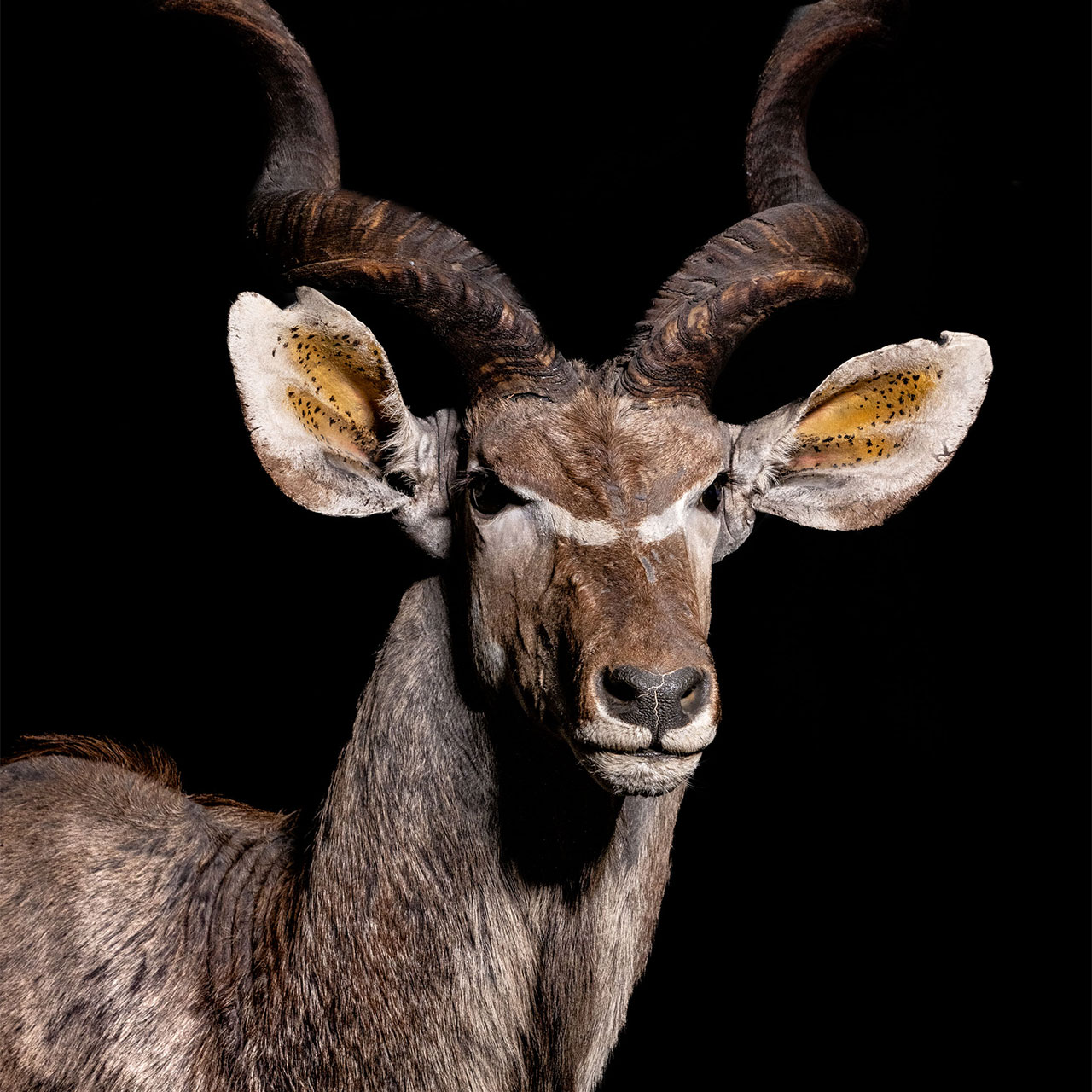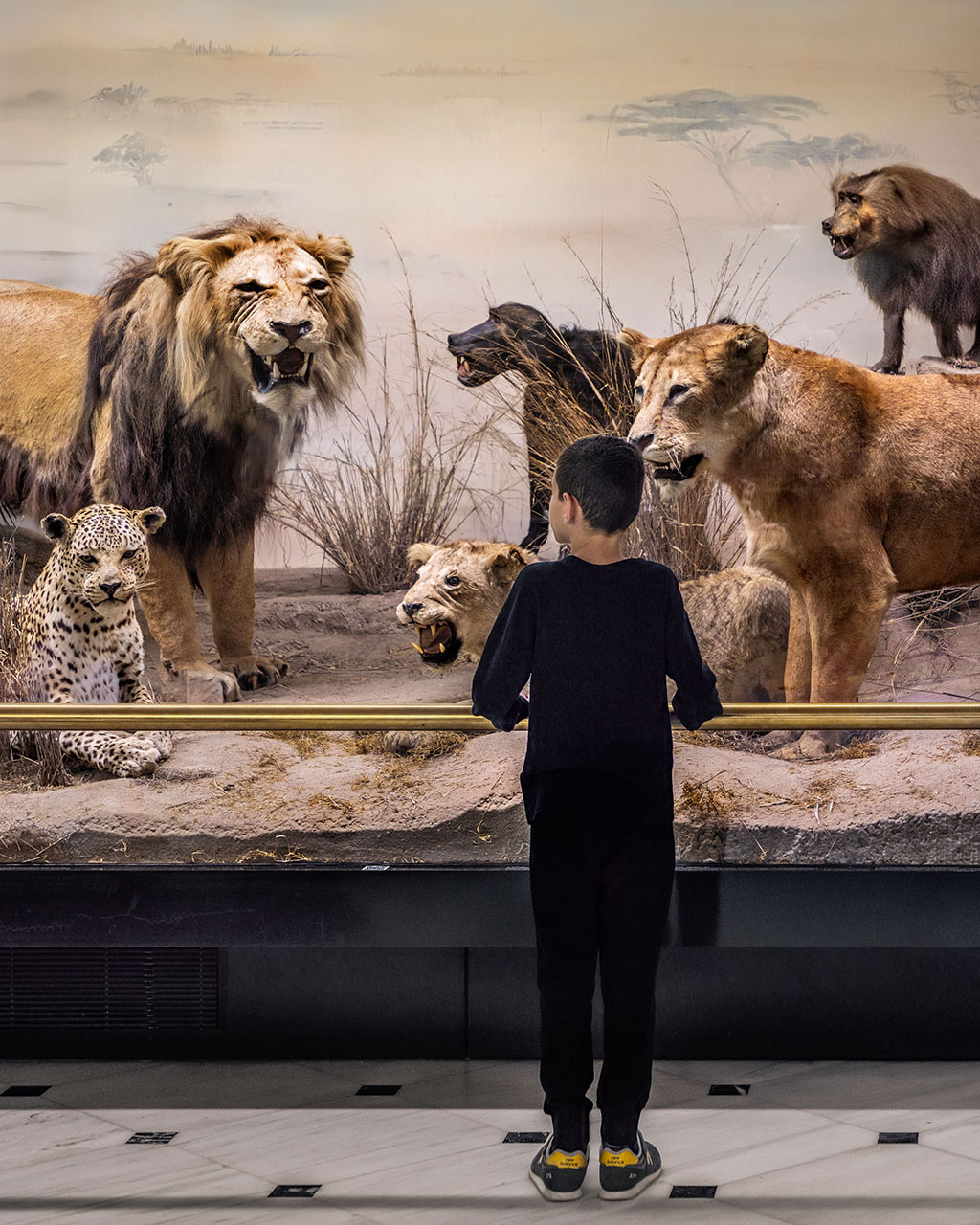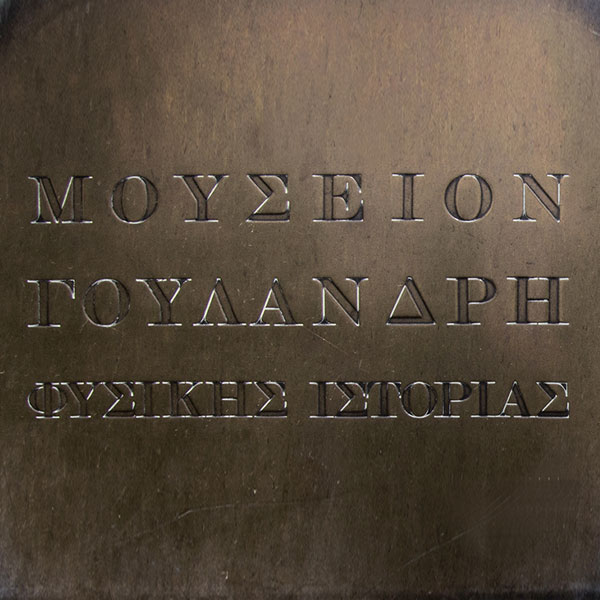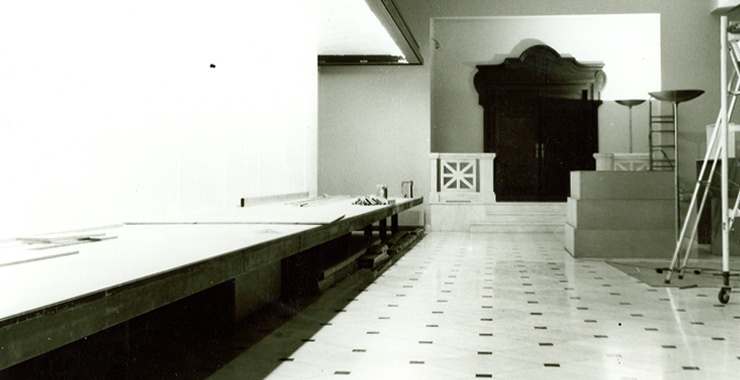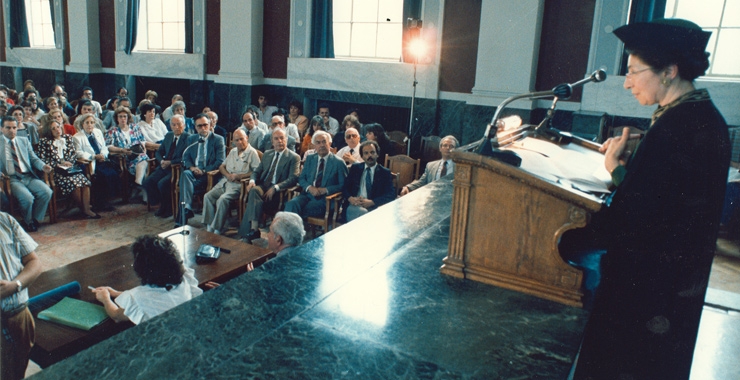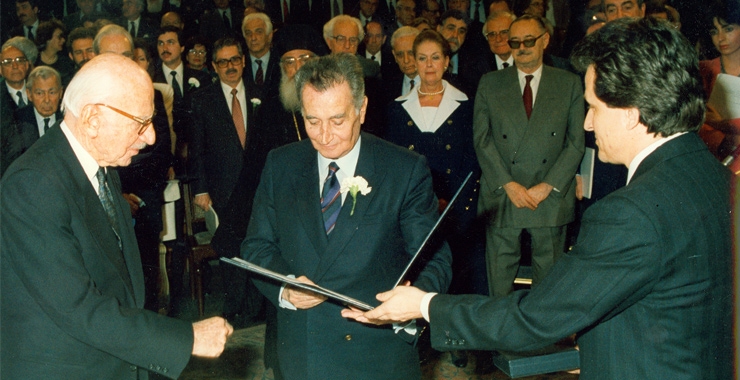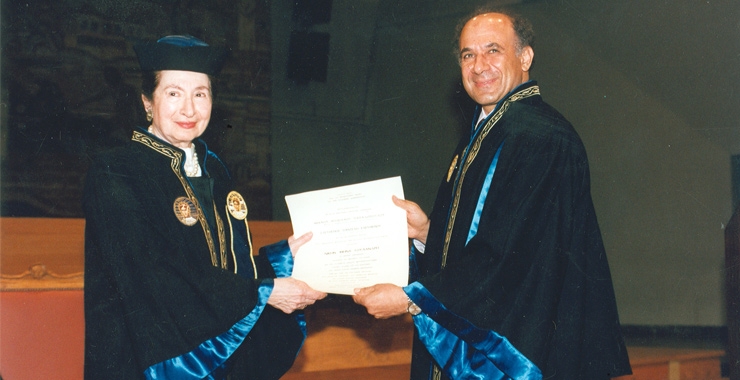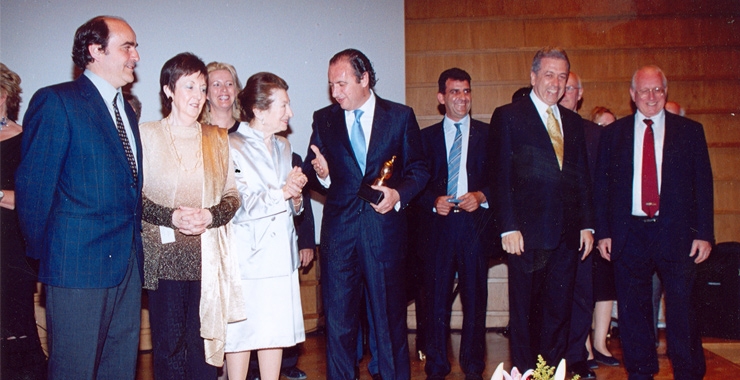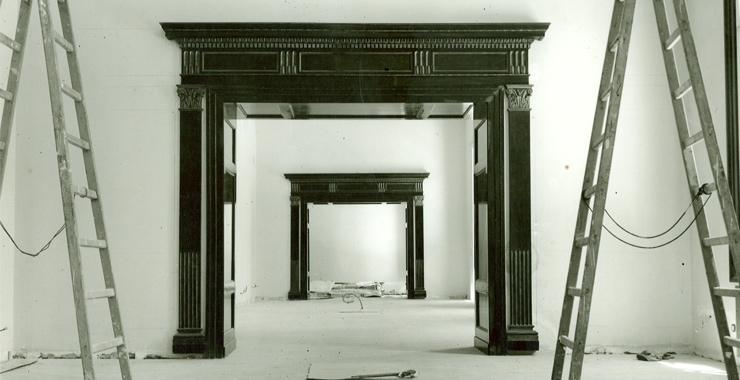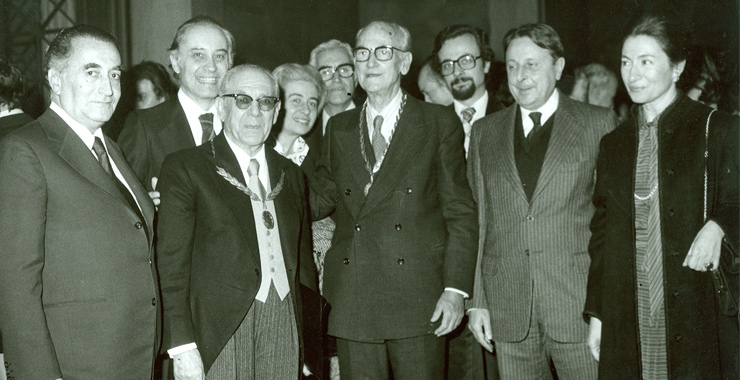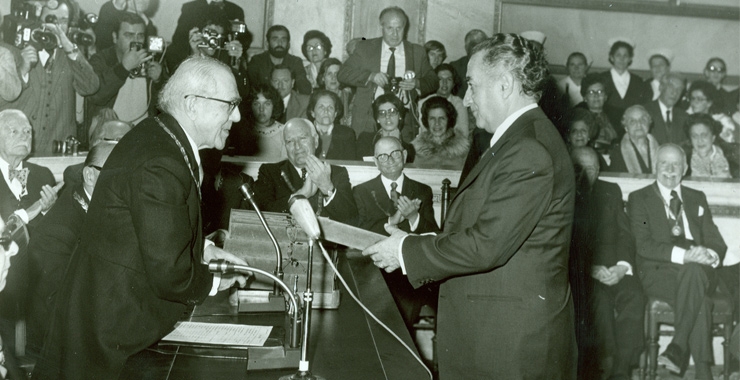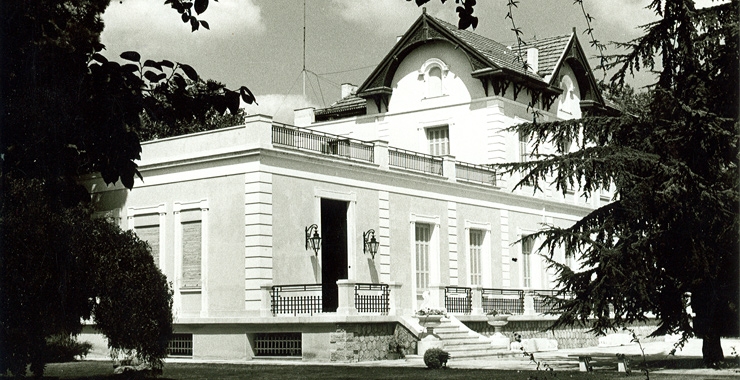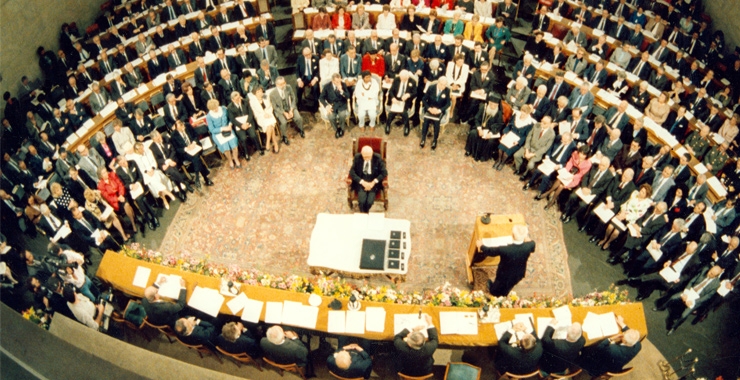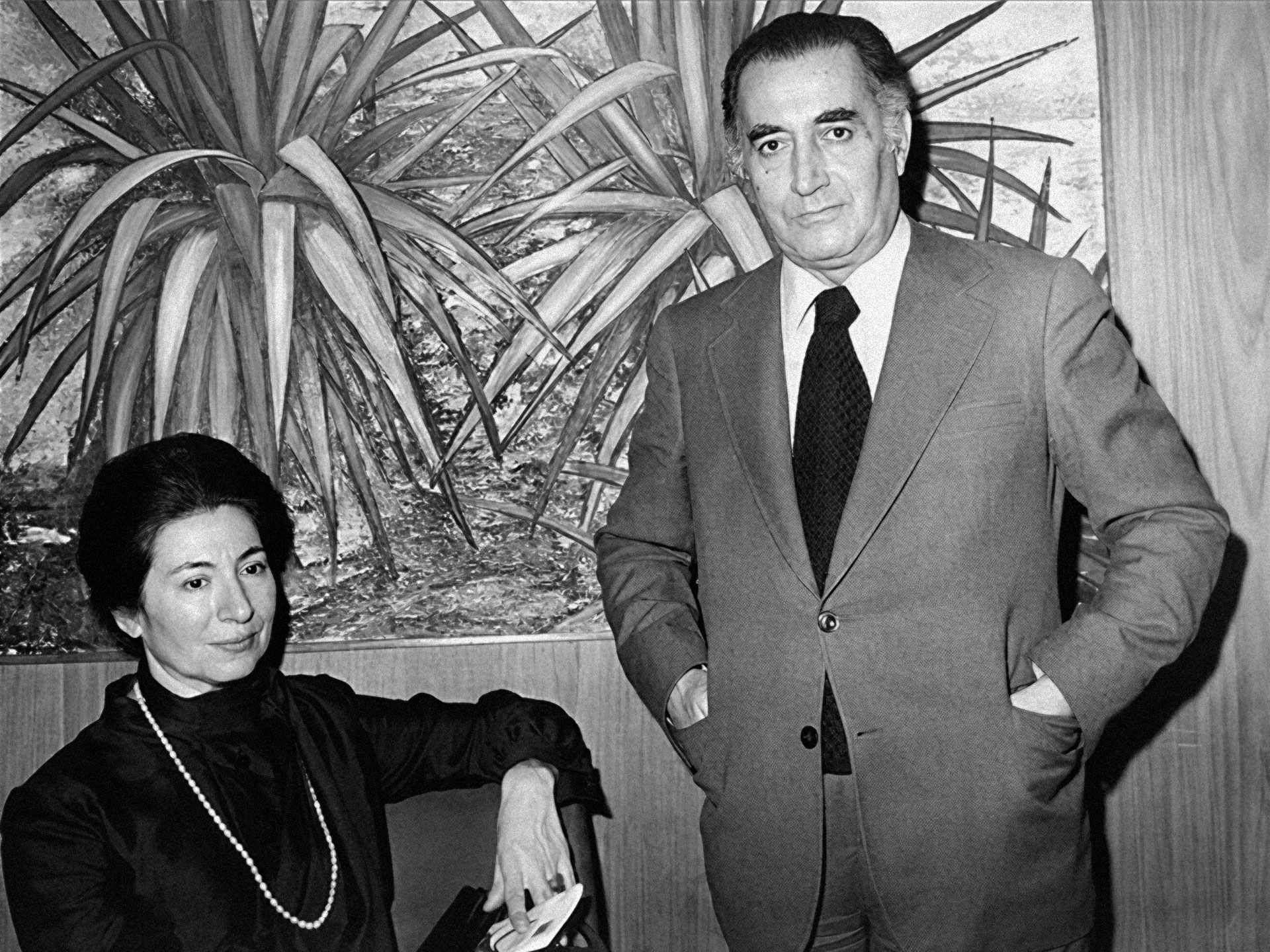
Founders & History
Angelos and Niki Goulandris were among the most visionary figures of modern Greece in the fields of environmental protection and ecological awareness. Through their work and contribution, they opened new paths in the study of nature, the preservation of biodiversity, and the connection between science and culture. The Goulandris Natural History Museum, which they founded in 1964, still bears their indelible mark: a living organism of knowledge, research, and education that continues to inspire thousands of visitors of all ages.
“The management of the Earth is the greatest problem of the 21st Century. We need a new approach in the organization and management of nature. The environment will become the first priority in the relationship between states. Any other ideology will recede under environmental pressures.”
Angelos Goulandris, 1973
“Biodiversity guarantees the coexistence of various species and the capacity of ecosystems to preserve the fertility of the soil and the microclimate, thus ensuring the sustainability of the Earth’s wealth. Furthermore, cultural diversity is the expression of man’s ability to adapt to different circumstances. Civilizations represent the solutions given by man to issues of survival in specific environments. Cultural diversity is expressed through the variety of languages, religions, farming methods, the arts, social structure, nutritional and pharmaceutical customs, and all other aspects of human behaviour.”
Niki Goulandris, 1996
Angelos and Niki Goulandris
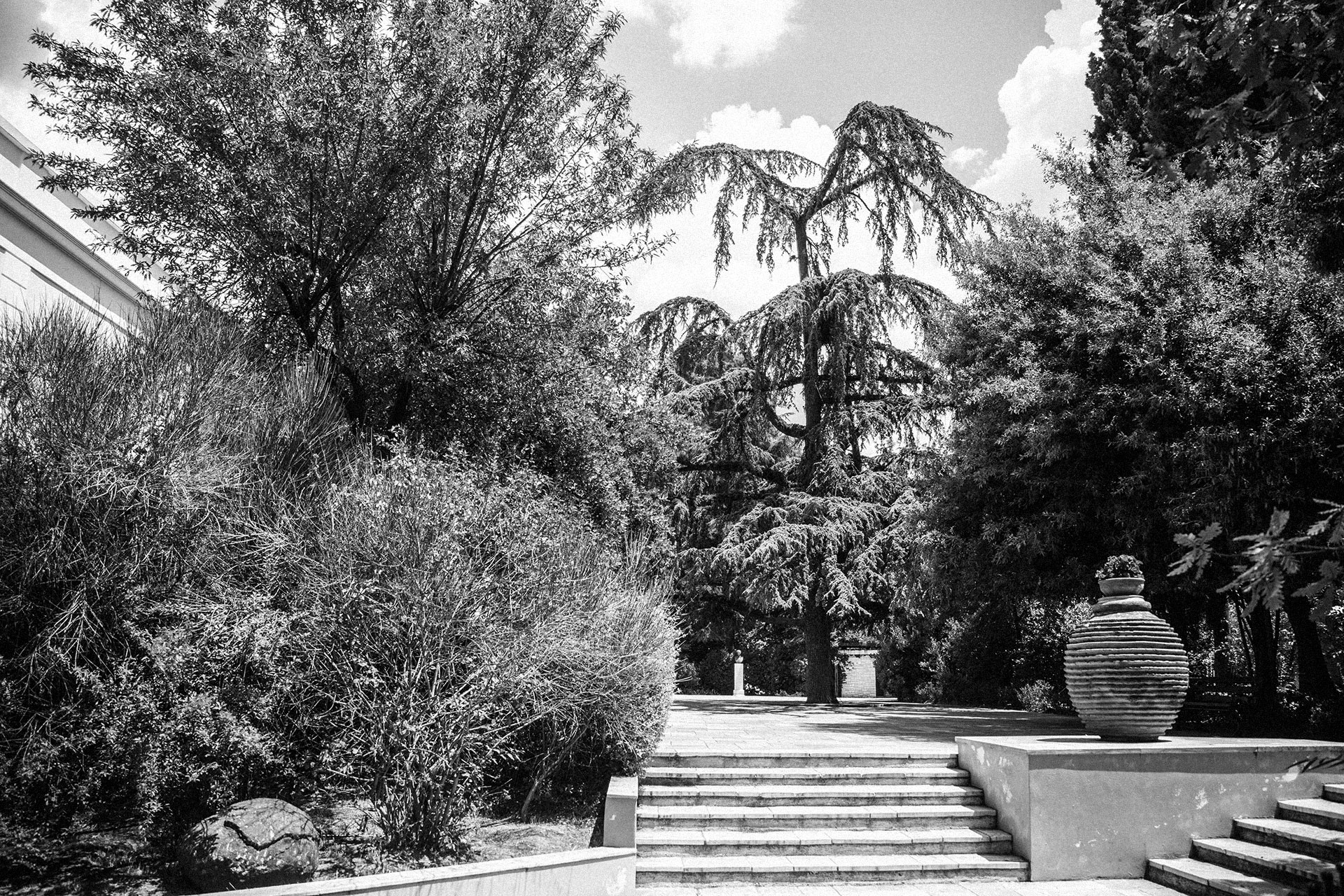
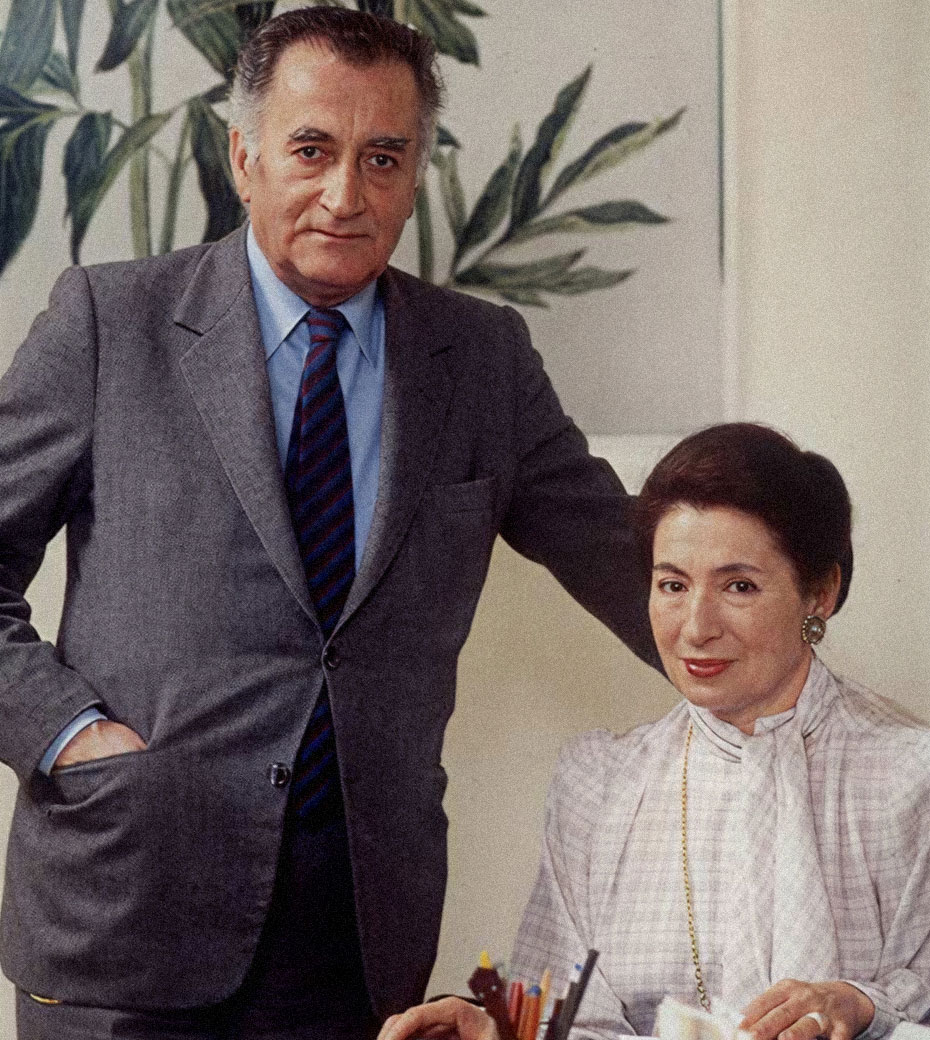
Angelos Goulandris
Angelos Goulandris, founder and president for 32 years of the Goulandris Natural History Museum, came from an old seafaring family of Andros.
From an early age, he was concerned with the relationship between humans and the natural environment, and with the impact of modern times upon it. In 1964, he founded the Museum with the goal of promoting scientific research and environmental education in Greece. The Museum’s mission was to raise awareness among Greeks about the wealth of the country’s natural resources and the need to protect them.
Angelos Goulandris dedicated to this effort both financial resources and his personal guidance and philosophy, completing his vision with the creation of the GAIA Centre.
Honors
1979: Silver Medal of Natural Sciences, Academy of Athens
1988: Honorary Doctorate, Aristotle University of Thessaloniki
1990: International Award “Man and Environment”, Onassis Foundation
In his personal time, he pursued painting and sculpture, exploring mathematical and geometric principles of cosmic balance.
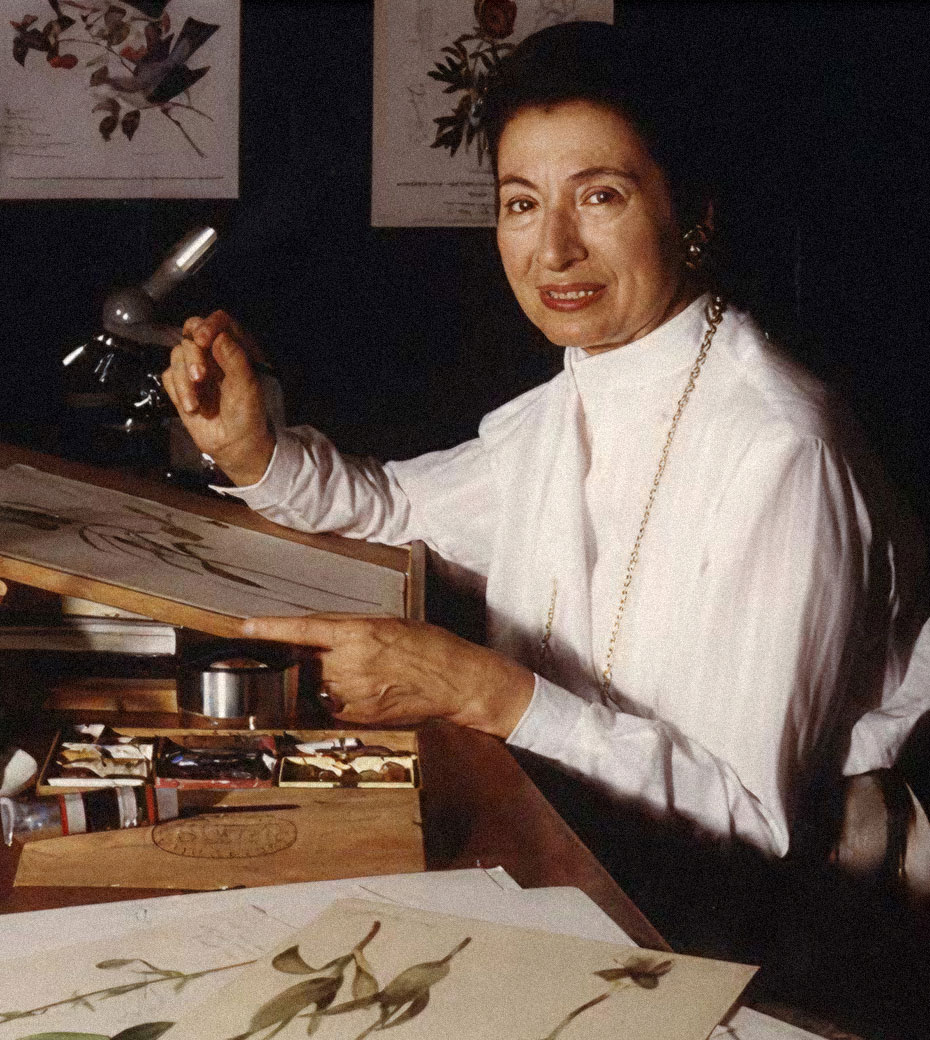
Niki Goulandris
Niki Goulandris, co-founder and president of the Goulandris Natural History Museum, passed away at the age of 94, on February 9, 2019.
Internationally recognized for her work in environmental protection, she combined ecological goals with cultural values. From an early age, she devoted her life to learning, reflection, and science. With the support of her husband, Angelos Goulandris, she nurtured her research spirit, avoiding transient ideologies and believing that the world needed new values for the balance of humanity and society.
She studied Political Science and Economics at the University of Athens and pursued postgraduate studies at the University of Frankfurt in Political Science and Philosophy, under philosophers Horkheimer and Adorno.
At the same time, she distinguished herself as a botanical painter. She painted nearly 800 Greek plants, published in works such as Wild Flowers of Greece and Peonies of Greece.
Her artistic activity also included collaborations with international houses such as Limoges, Royal Copenhagen, and Hermès, designing porcelain and silk scarves.
Career & Activities
1964: Co-founding of the Goulandris Natural History Museum
1974–1975: Deputy Minister of Social Services, responsible for 200,000 Cypriot refugees
1975–1981: Vice President of Hellenic Radio and Television
1989–1991: Vice President of the Greek National Tourism Organization
1980–2002: President of “Save the Children” Greece
1992–1995: Member of the Board, IDCR, Canada
1992: Member of the Greek Delegation to the Rio Conference
1993–1996: Member of the International Commission on Culture and Development
1996–2019: President of the Goulandris Natural History Museum
2003: Member of the Greek Delegation to the Johannesburg Summit
Honors & Distinctions
Honorary distinction, Academy of Athens
Member of the Linnean Society of London
Global 500 Award, United Nations
Woman of Europe 1991, European Community
Honorary Doctorates: Aristotle University of Thessaloniki (Forestry, Agriculture, Biology), University of Thessaly (Preschool, Primary, Special Education), Uppsala University
Corresponding Member, French Academy of Moral and Political Sciences
Member, Academia Europaea
Medals
Commander of the Order of the Phoenix, Greece
Légion d’Honneur (Officier), France
Grand Cross, Order of Merit, Germany
Historical background
Angelos and Niki Goulandris shared a vision: to create a place for research and protection of Greek nature. Thus, they founded the Natural History Museum, where love for nature met scientific curiosity.
Their aim was to strengthen national awareness about protecting natural wealth and to instill in young people the value of balance between humans and the environment. Initially, it functioned as a Botanical Museum, and in 1977 expanded into zoology, paleontology, and geology, being renamed the Goulandris Natural History Museum. The first exhibition halls opened after ten years of collecting and research, combining scientific accuracy with educational approaches.
In 1983, the Museum acquired the estate Sparoza in Paiania (17.5 acres), which was transformed into a model of ecological Mediterranean gardening. Since 1994, it has hosted the Mediterranean Garden Society, offering knowledge and inspiration to all interested in flora and garden design.
In 1991, the Greek Biotope/Wetland Centre was established in Thessaloniki, for the recording and protection of wetlands and the development of sustainable management strategies. Later, the Museum created the Centre for Environmental Research and Education – GAIA, completed in 2000, connecting Greek mythology, philosophy, and science in a modern hub of research and education.
In Crete, the Museum restored the Mastabas Mosque in Rethymno, housing paleontological and geological collections that highlight the island’s geophysical evolution and uniqueness. In April 2024, the Hellenic Parliament proclaimed the Goulandris Natural History Museum as the National Museum of Natural History of Greece, through Article 38 of Law 5106/2024.

